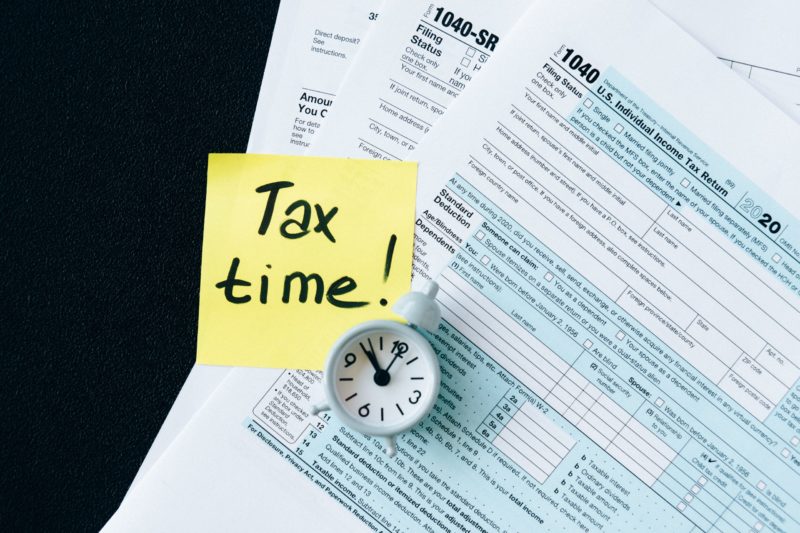
It’s tax filing season and people across the country are busy gathering financial statements of all kinds as they prepare to submit their tax return before the April 18th deadline. Tax prep in general is not something that many people look forward to each year. Since the pandemic in 2020, the past 2 years have been especially challenging for the average taxpayer trying to navigate their way through the tax filing process.
When it comes to tax planning and compliance, some aspects are pretty clear, while other matters become more complicated, often requiring one to seek the help of a professional tax preparation service. One common area of concern for many U.S. taxpayers this tax season is related to unemployment benefits. Is it taxed, and how do I file properly? If you’ve lost your job and are receiving unemployment, you’ll want to pay special attention to the tax laws. Knowing these policies will help you receive what is owed to you on your return or minimize the amount you need to pay back.
Fortunately, Waters Hardy has plenty of experience and expertise in all unemployment tax matters. We can handle your tax filing needs, so that you don’t have to worry about making any mistakes. Waters Hardy guarantees professionalism and always offers accurate tax preparation and compliance, while getting you a maximum tax return.
Are Unemployment Benefits Taxable?
Yes, unemployment benefits are taxable. You may not have been working, but you were receiving an income. So, on a federal level, the IRS views unemployment benefits as an income. Taxes for unemployment differ between states, as some states tax a portion of the benefits, and other states do not tax benefits at all. In addition, your city or county may tax unemployment as well. So, these are all different ways that will alter your rate of return or how much you owe in taxes.
How Unemployment Benefits Changed in 2021
In an effort to recover from unemployment rates not seen since the Great Depression, The American Rescue Plan Act of 2021, a pandemic relief law, waived federal income tax on unemployment benefits paid out in 2020. This is a retroactive law since it was passed after some taxpayers had already filed tax returns for 2020. The changes included the following:
- If your adjusted gross income (AGI) is $150,000 or less, the first $10,200 of any unemployment income is not taxable. Keep in mind, you aren’t going to get $10,200 refunded. You would be refunded the income taxes you paid on $10,200. Any unemployment income over $10,200 is still taxable.
- If you’re married and filing jointly, the first $20,400 of unemployment income is not taxable.
- If your AGI was over $150,000 in 2020, all of your unemployment income is taxable.
What if I Filed My Taxes for 2020 BEFORE the American Rescue Plan Act in March of 2021?
The IRS has identified over 10 million people who filed their tax returns before the plan became a law and is reviewing those returns to determine the correct amount for the tax on their unemployment benefits. For those affected, this could result in a refund, a reduced tax bill, or no change at all.
The IRS started recalculating impacted tax returns with returns from single taxpayers who had relatively simple returns, such as individuals who didn’t claim any dependents or any refundable tax credits. The tax agency then shifted to joint returns filed by married couples who are eligible for an exemption up to $20,400. This exemption is also for others who might have had a more complex tax return as well.
Keep in mind that if excluding your unemployment income makes you eligible for other tax deductions or tax credits, such as a bigger Earned Income Tax Credit, the IRS suggests you may want to go ahead and amend your 2020 tax return.
Be Prepared to Pay Taxes on Unemployment Benefits Received in 2021
The tax exemption only applies to unemployment benefits received in 2020. So, if you received unemployment in 2021 or beyond, expect to pay federal tax on the amount you receive. Congress has yet to approve a similar tax break for the 2021 benefits, so be aware that it is not the same as the 2020 Unemployment Tax Exclusion.
How Much Tax Will I Pay in Unemployment Benefits?
This answer will vary depending on whether you chose to have your taxes withheld from your unemployment checks.
- When you sign up to receive unemployment benefits, you can choose if you want the standard 10% withheld in federal tax prior to being paid.
- Some people choose to not have any taxes withheld in order to keep more money in their pocket initially, but will have to pay back some or all of the taxes when they file their return.
Taxing Unemployment is Here to Stay
The U.S. economy and job market have rebounded significantly since early 2021. Claims for unemployment benefits at the end of December had fallen to pre-pandemic levels. The national unemployment rate is 3.9%, its lowest level since February 2020. Approximately 25 million people collected benefits last year compared to roughly 40 million people in 2020. The labor market has not fully recovered, but the numbers seem to indicate that things are starting to improve.
Tax Preparation for 2022
Many variables impact unemployment tax rates and returns. Evaluating the financial impact of your unemployment tax rates requires continuous monitoring. We can give you an understanding of the current economic situation while tracking the changes for unemployment tax matters. At Waters Hardy, we pride ourselves in leading the industry in tax preparation, consulting, and compliance. Take advantage of our stellar tax preparation services and feel confident knowing that your tax filing is in good hands. Contact us today!
